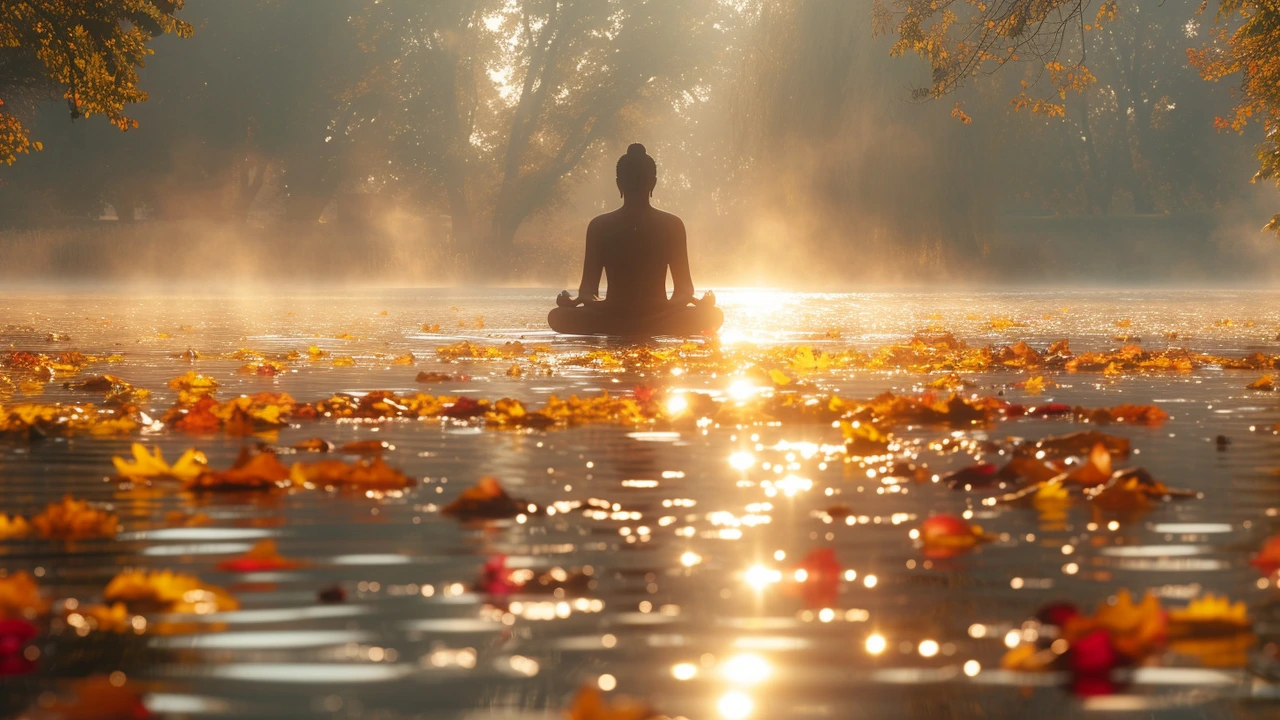Unveiling the Essence of Calmness
When we talk about calmness, it's easy to picture a serene landscape or a quiet morning. But calmness is much more than just an external absence of noise; it's a profound presence of peace within oneself. In a world that often celebrates hustle and constant activity, finding and maintaining this inner peace can seem like a Herculean task. Yet, it's precisely this inner serenity that can provide us with an anchor during life's tumultuous storms. Whether it's dealing with work stress, family dynamics, or personal setbacks, staying calm isn't about being passive; it's about choosing a state of mental clarity and emotional stability. This foundation allows us to see beyond immediate turbulence and make decisions rooted in wisdom rather than react impulsively.
Why Calmness Matters
In the fast-paced rhythm of modern life, the value of calmness can't be overstated. Research shows that individuals who practice calmness tend to exhibit better stress management skills, exhibit lower levels of anxiety and depression, and even enjoy enhanced problem-solving abilities. A calm mind is like a clear sky after a storm, free from the clutter of overthinking and worry, thereby enabling better focus and creativity. Moreover, the physiological benefits are just as significant. Reduced stress levels correlate with lower blood pressure, improved digestion, and a strengthened immune system. In essence, calmness doesn't just make us feel better emotionally; it lays the groundwork for better health and longevity.
Understanding the Obstacles to Calmness
Acknowledging the impediments to calmness is the first step towards overcoming them. Our modern lifestyle, characterized by constant connectivity, social media bombardment, and a never-ending to-do list, can make it challenging to find moments of peace. Additionally, personal fears, insecurities, and unresolved traumas can act as barriers, constantly triggering our fight or flight response even in non-threatening situations. Understanding that these challenges are prevalent and acknowledging their impact on our mental state is crucial. It's about recognizing the noise, both external and internal, that disturbs our peace and taking conscious steps to mitigate its influence.
Techniques for Cultivating Calmness
Thankfully, calmness is a skill that can be nurtured with time and patience. It starts with simple practices like mindfulness meditation, which trains the mind to stay anchored in the present moment, reducing the propensity for worry about the future or regret over the past. Deep breathing exercises are another cornerstone for inducing calm. By focusing on our breath, we can dampen the body's stress response and foster a sense of tranquility. Maintaining a gratitude journal is another powerful tool, as it shifts our focus to the positives in our lives, many of which we often overlook. Lastly, setting boundaries around work and technology use can help preserve our mental space from becoming overwhelmed and cluttered.
Calmness in Action: Overcoming Life's Challenges
Integrating calmness into our daily lives doesn't mean we'll never feel stressed or overwhelmed; rather, it means we're better equipped to handle such situations. Imagine facing a sudden setback at work. A calm approach allows us to assess the situation objectively, seek solutions, and communicate effectively rather than reacting hastily and exacerbating the problem. In personal relationships, calmness helps us listen more deeply, respond with empathy, and avoid unnecessary conflicts. This proactive approach to challenges, grounded in calmness, transforms obstacles into opportunities for growth and learning.
The Ripple Effects of Calmness
The benefits of cultivating a calm demeanor extend far beyond the individual. It influences our interactions with others, creating a more harmonious environment. In a state of calm, our capacity for empathy, kindness, and understanding is amplified, positively affecting our relationships. Additionally, in leadership roles, calmness inspires confidence, fosters a positive work culture, and encourages constructive problem-solving. Essentially, calmness isn't just a personal trait but a social one, enhancing the well-being of communities by promoting peaceful and productive coexistence.
Building a Lifestyle Rooted in Calmness
Adopting a lifestyle that prioritizes calmness involves making conscious choices daily. It's about creating routines that support mental and emotional health, such as regular exercise, engaging in hobbies that bring joy, and connecting with nature. It also means being mindful of the content we consume, from the news to social media, and choosing sources that uplift rather than distress. A calm-centered lifestyle is an investment in our future self, offering a solid foundation to lead a fulfilling, balanced, and resilient life.
Conclusion: The Transformative Power of Calmness
Embracing calmness is akin to building a fortress around our mental and emotional well-being. It equips us to navigate life's challenges with grace, fosters healthier relationships, and enhances our overall quality of life. While cultivating calmness takes effort and patience, the rewards are immense and far-reaching. As we journey through life, let us remind ourselves that amidst chaos, calmness is our most potent ally, capable of transforming not just our own lives but also the world around us.






